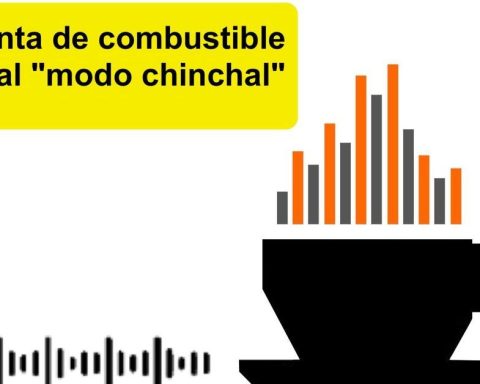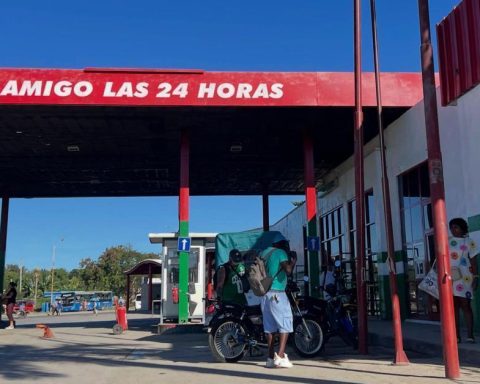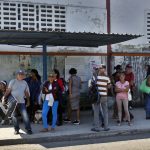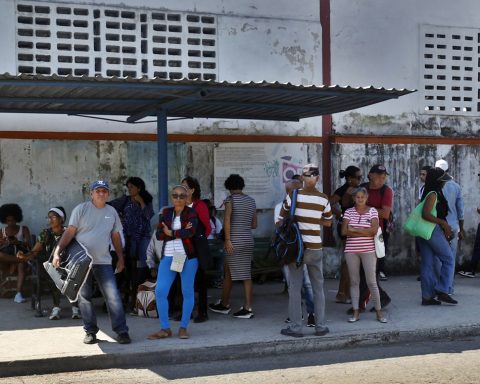The Cuban authorities extended until December 31, 2023 the permit for the non-commercial importation of power plants of more than 900 watts. On the eve of the hottest months of the year, the measure –approved in August 2022 and reactivated last December – tries to prevent a summer of new blackouts and the usual decompensation of the National Electric System (SEN) due to the high demand for electricity.
The extension was announced this Thursday in a extraordinary edition of the official Gazette, through a resolution of the Ministry of Finance and Prices. The sections of the document recall that this government agency is empowered to reauthorize the measure as many times as it deems necessary, and considers that the acquisition of power plants has brought notable “benefits for the residential sector”, given the “contingencies” that have affected to the SEN.
Initially approved after the energy debacle that the Island suffered during the summer of 2022, the measure expired in December of that year. However, the authorities extended the term for three months, until March, while this Thursday the extension was decided for another nine months.
The lack of fuel, essential for the operation of the plants, and the strict control and registration have hindered its role in Cuban houses.
Since last August, Cubans have taken advantage of this law to import power plants of more than 900 watts, although the increase in the number of this equipment has not meant a total solution to the energy problem. The lack of fuel, essential for the operation of the plants, and the strict control and registration that the Government maintains over its owners, have made it difficult for them to play a role in Cuban homes.
The rule, which promised “special treatment” for equipment importers, was the continuation of a set of measures approved in July 2022, in order to make non-profit imports of various items more flexible. The inventory included everything from cell phones and computers to appliances, sporting goods and auto parts.
At that time, the importation of power plants of up to 900 watts for a price of 200 dollars was also authorized, from 900 to 1,500 for 500 dollars, and over 1,500 for 950. However, the authorities understood that the document underestimated the price of the devices and, therefore, it attributed an erroneous number that affected the possibility of importation. In the US market – where most of this equipment is usually purchased – the cost of a power plant of more than 900 watts exceeded not only 200 dollars, but could reach 500 for each unit.
The extension approved this Thursday will also reactivate the market for this type of equipment in the United States, where Cubans residing in Florida will try, once again, to send their relatives
“When assessing the effects on the residential sector that still persist, as a result of the energy deficit caused by breakdowns in the national electrical energy system, it is necessary to temporarily authorize the importation of power plants with a power of more than 900 watts,” they consented.
There was no shortage of complaints and comments about the opportunism of the measure. On the other hand, the noise of the machinery during the blackout nights also caused discomfort in the neighbors of the “lucky” owners.
Dissatisfaction increased with the announcement that plants had to be registered at local service centers as a condition to be able to buy 10 liters of gasoline to start the equipment.
The owners of the plants faced new difficulties due to the need to “register” the plants, a requirement that also raised suspicions. The Government, according to several users on social networks, also intended to carry out a strict “census” of the equipment and its owners, noting their identity card and the serial number of the machine.
As if that were not enough, the queues of customers in front of the service centers and the usual shortage of fuel were another obstacle to achieving the efficiency of the plants during a situation that the authorities had to describe as “the worst in the history” of the SEN.
Miguel Díaz-Canel’s promise that the blackouts would end by the end of the year was fulfilled for only a few weeks. At the beginning of this year, the Minister of Energy and Mines Vicente de la O Levy anticipated that the blackouts would return, although initially he assured that they would only last a couple of hours and a few weeks later he extended the term to 3 or 4 which, in the practice, have been exceeded in some areas. Not to mention that half of the Island has already experienced four serious energy collapses in just three months.
The extension approved this Thursday will also reactivate the market for this type of equipment in the United States, where Cubans residing in Florida will try, once again, to send their relatives on the Island a plant with which to alleviate the long nights of blackouts that According to the Government itself, they are far from being a reality that has been overcome.
________________________
Collaborate with our work:
The team of 14ymedio He is committed to doing serious journalism that reflects the reality of deep Cuba. Thank you for accompanying us on this long road. We invite you to continue supporting us, but this time becoming a member of our newspaper. Together we can continue transforming journalism in Cuba.
















